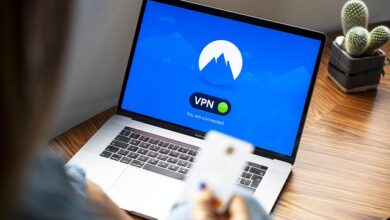How to Choose Between Paid & Free VPN Services

In today’s digital age, the internet has become an integral part of our daily lives. From online shopping and banking to social media and streaming services, we rely heavily on the web for both personal and professional purposes. However, with this increased reliance comes a heightened risk of cyber threats, data breaches, and privacy violations. This is where Virtual Private Networks (VPNs) come into play. A VPN encrypts your internet connection, masks your IP address, and helps protect your online activities from prying eyes.
But when it comes to choosing a VPN service, you are faced with two main options: paid or free. Both have their advantages and disadvantages, and selecting the right one depends on your specific needs, budget, and priorities. In this article, we will delve into the differences between paid and free VPN services, helping you make an informed decision.
Understanding the Basics of Paid vs. Free VPNs
Before diving into the specifics, let’s first understand what distinguishes paid and free VPNs:
Paid VPNs
Paid VPNs are subscription-based services that offer advanced features, robust security protocols, and reliable performance. These services typically prioritize user privacy and provide dedicated customer support.
Free VPNs
Free VPNs, as the name suggests, do not require any payment. They are often supported by advertisements or other monetization strategies, such as collecting and selling user data. While they may seem appealing due to their cost, free VPNs often come with limitations in terms of speed, server availability, and security.
Key Factors to Consider When Choosing Between Paid & Free VPNs
1. Security Features
One of the primary reasons people use a VPN is to enhance their online security. Let’s compare how paid and free VPNs stack up in this regard:
Paid VPNs:
- Encryption Strength: Paid VPNs usually offer military-grade encryption (e.g., AES-256), ensuring that your data remains secure even if intercepted.
- No-Logs Policy: Reputable paid providers adhere to strict no-logs policies, meaning they don’t store any records of your online activity.
- Advanced Protocols: Paid services support cutting-edge protocols like OpenVPN, WireGuard, and IKEv2, which provide optimal balance between speed and security.
Free VPNs:
- Limited Encryption: Many free VPNs lack strong encryption standards, leaving your data vulnerable to hackers and snoopers.
- Data Collection: Some free VPNs collect and sell user data to third parties for advertising purposes, undermining your privacy.
- Fewer Protocols: Free services often rely on outdated or less secure protocols, compromising your protection.
Conclusion: If security is your top priority, paid VPNs are the better choice.
2. Performance and Speed
The performance of a VPN directly impacts your browsing experience, especially when streaming videos, downloading files, or playing online games.
Paid VPNs:
- High-Speed Servers: Paid providers invest in high-speed servers located across multiple countries, ensuring fast and stable connections.
- Unlimited Bandwidth: Most paid plans offer unlimited bandwidth, allowing you to stream HD content without interruptions.
- Dedicated IP Addresses: Some premium services provide dedicated IPs, reducing congestion and improving connection quality.
Free VPNs:
- Slow Connections: Free VPNs often suffer from slow speeds due to overloaded servers and limited resources.
- Data Caps: Many free services impose data limits, restricting your usage after a certain threshold.
- Server Congestion: With more users sharing the same infrastructure, free VPNs can lead to frequent disconnections and poor performance.
Conclusion: For a seamless and lag-free experience, paid VPNs outperform their free counterparts.
3. Privacy Concerns
Your privacy is paramount when using a VPN. Here’s how each type addresses this issue:
Paid VPNs:
- Transparent Policies: Trusted paid providers publish detailed privacy policies, clearly stating their commitment to safeguarding your information.
- Independent Audits: Many reputable companies undergo regular audits by third-party organizations to verify their claims about data protection.
- No Ads: Paid VPNs do not bombard you with intrusive ads, maintaining a clean and distraction-free interface.
Free VPNs:
- Hidden Agendas: Some free VPNs engage in unethical practices, such as tracking your online behavior and selling your data to advertisers.
- Lack of Transparency: Free services rarely disclose how they handle your data, raising concerns about trustworthiness.
- Advertisements: Free VPNs often display annoying ads, which can also pose additional security risks.
Conclusion: If you value your privacy, investing in a paid VPN is essential.
4. Customer Support
When technical issues arise, having access to reliable customer support can make all the difference.
Paid VPNs:
- 24/7 Assistance: Premium providers offer round-the-clock support via live chat, email, or phone, ensuring quick resolution of problems.
- Knowledgeable Staff: Paid services employ trained professionals who can assist with complex queries related to setup, troubleshooting, and optimization.
Free VPNs:
- Limited Help: Free VPNs typically provide minimal support, relying on FAQs or community forums instead of direct assistance.
- Long Response Times: Even when support is available, free services tend to respond slowly, leaving users frustrated.
Conclusion: Paid VPNs excel in providing comprehensive and timely customer support.
5. Price vs. Value
While free VPNs might appear attractive at first glance, they often fail to deliver long-term value. On the other hand, paid VPNs offer a range of benefits that justify their cost.
Cost of Paid VPNs:
- Monthly subscriptions for paid VPNs usually range from $5 to $12, depending on the plan and duration of commitment.
- Annual plans often come with significant discounts, making them more affordable over time.
Hidden Costs of Free VPNs:
- Although free VPNs don’t charge money upfront, their true costs lie in compromised security, reduced performance, and potential misuse of your personal data.
- The ad-driven model of free services can lead to annoying interruptions and slower browsing experiences.
Conclusion: Weighing the pros and cons, paid VPNs represent a better investment for those seeking consistent value.
Who Should Opt for Free VPNs?
Despite their drawbacks, free VPNs can still be useful in certain scenarios:
- Casual Users: Individuals who occasionally need to bypass geo-restrictions or access blocked websites might find free VPNs sufficient.
- Short-Term Needs: If you only require temporary protection while traveling or using public Wi-Fi, a free service could suffice.
- Budget Constraints: People with limited financial resources may prefer free options until they can afford a paid alternative.
However, it’s crucial to exercise caution when selecting a free VPN. Always research the provider thoroughly and opt for well-reviewed services with transparent practices.
Who Should Choose Paid VPNs?
Paid VPNs are ideal for:
- Power Users: Those who frequently engage in activities requiring high-speed connections, such as torrenting, gaming, or streaming.
- Privacy Enthusiasts: Individuals concerned about protecting their sensitive data from government surveillance, hackers, or corporations.
- Business Professionals: Companies needing secure remote access for employees or clients.
- Travelers: Frequent travelers who want unrestricted access to their favorite services regardless of location.
Tips for Selecting the Right VPN Service
Whether you decide on a paid or free VPN, here are some tips to guide your selection process:
- Check Server Locations: Ensure the VPN offers servers in the regions you need.
- Read Reviews: Look for unbiased reviews from trusted sources to gauge reliability.
- Test Before Committing: Take advantage of free trials or money-back guarantees offered by paid providers.
- Evaluate Pricing Plans: Compare different packages to find the best deal based on your requirements.
- Assess Compatibility: Confirm the VPN works seamlessly with your devices and operating systems.


